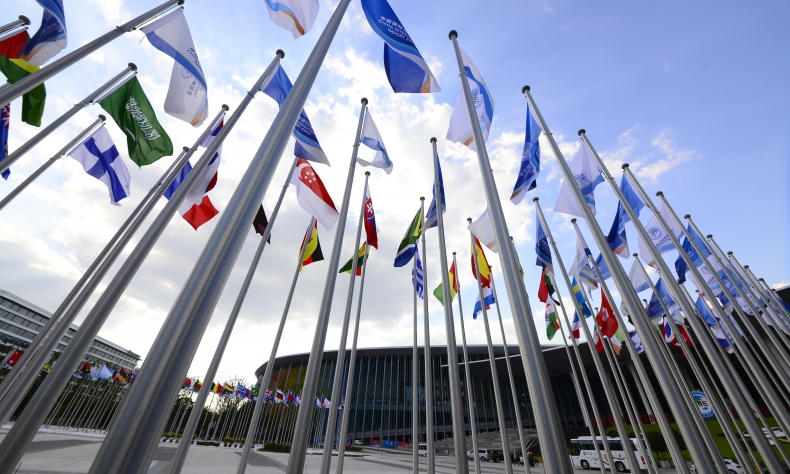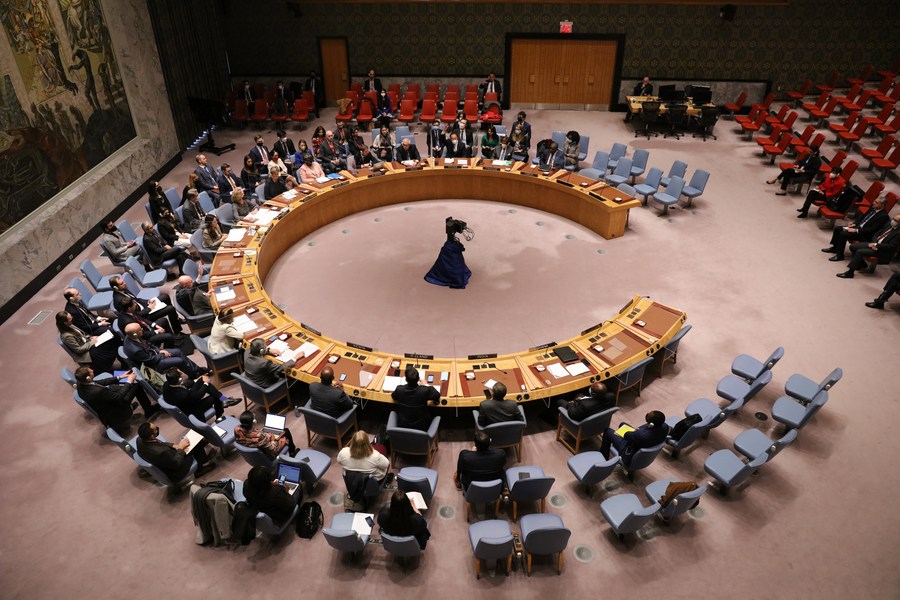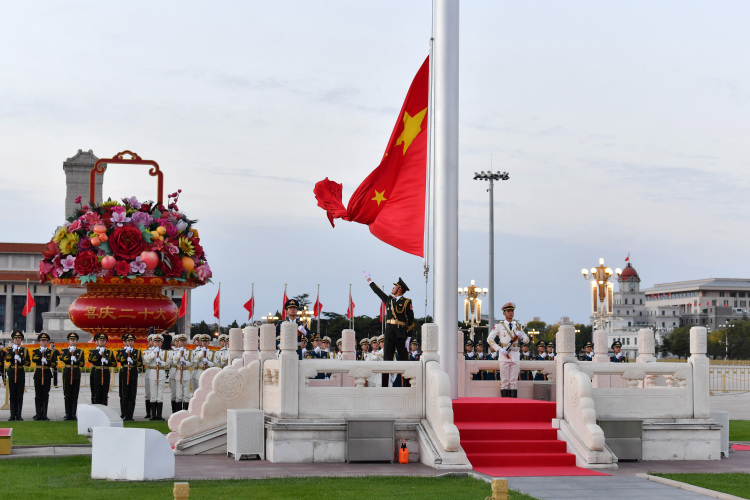The Chinese Approach to Forging a New Type of Major-Country Relations

Establishing and developing peaceful, stable and balanced relations with major countries is not only an important part of building a community with a shared future for mankind, but also an important guarantee for its formation.
The Report to the 20th National Congress of the Communist Party of China (CPC) has enriched and developed China’s plans for promoting human progress, deepened our understanding of China’s relations with the world, and made it clear that the pursuit of peace and development is central to the application of ‘socialism with Chinese characteristics’ in the new era.
The report lays out China’s international role, analyzes international development trends, and summarizes the focus, mission and responsibility, principles of conduct and strategies for promoting China’s foreign relations.
In the theory and practice of China’s diplomacy today, countries are divided into three categories: major countries, neighboring countries and developing countries. The evolution of world history shows that major-country relations ultimately determine the direction of the development of the international community, and also have a bearing on China’s international environment. China attaches great importance to forging a new type of major-country relations, the core of which is coordination and positive interaction among major countries, as opposed to vicious competition.
The Report to the 20th National Congress of the Communist Party of China stresses that “China works to enhance coordination and positive interaction with other major countries to build major-country relations featuring peaceful coexistence, overall stability, and balanced development.” This basically outlines China’s approach to major-country relations and directly answers the question of how China views major-country relations today and how to promote a new type of major-country relations. Coordination and positive interaction are the foundation and core for forging a new form of major-country relations. Peaceful coexistence, overall stability and balanced development are the main priorities.
Coordination and positive interaction among major countries are very important for the world to cope with various crises and challenges. The current international security situation is undergoing profound and complex changes, and major countries lack strategic mutual trust and cooperation. The world has entered a new period of turbulence and change. Against this backdrop, the question of how to stabilize and manage major-country relations has become a historic test for China’s diplomacy. As the Report puts it, “China stands firmly against all forms of hegemonism and power politics, the Cold War mentality, interference in other countries’ internal affairs, and double standards.”

World history has proved time and again that there are no winners in war and that malicious competition will only lead to conflict and disaster. China suggests that coordination should replace competition in major-country relations, and that win-win cooperation should replace zero-sum thinking. Positive interaction means mutual benefit. While pursuing our own development, we should strive to achieve positive interaction with the development of other countries and uphold the consistency between our own interests and the common interests of mankind.
Peaceful coexistence stems from traditional Chinese wisdom on state-to-state relations. On December 31, 1953, in a talk with the Indian government delegation, Chinese Premier Zhou Enlai put forward the Five Principles of Peaceful Coexistence among countries. They are: mutual respect for sovereignty and territorial integrity, mutual nonaggression, mutual noninterference in each other’s internal affairs, equality and mutual benefit, and peaceful coexistence. The Five Principles of Peaceful Coexistence are interrelated, and the starting point is “mutual respect for sovereignty”.
With the principle of “equality and mutual benefit” and “peaceful coexistence” as its general goal and the other principles as its guarantee, it has formed a sound system of basic principles of international law, which complement and develop each other, and is richer and more comprehensive than a single principle. Deng Xiaoping continued this approach, maintaining that “The Five Principles of Peaceful Coexistence are the best way to handle state-to-state relations.”
Under President Xi Jinping, China adheres to the Five Principles of Peaceful Coexistence in pursuing friendship and cooperation with other countries. Peaceful coexistence is a comprehensive summary of the basic principles that should be followed in contemporary international relations and exchanges. Major countries should neither artificially widen differences and use them as grounds for confrontation, nor artificially escalate the bumps and bruises and use them as a pretext for confrontation. Instead, major countries should adhere to the principle of peaceful coexistence and the approach of dialogue and consultation to resolve disputes, manage differences, reach consensus and enhance mutual trust through dialogue, so as to effectively maintain mutual relations and the international order.

Overall stability indicates that major-country relations remain basically stable and more resilient, and should not experience dramatic fluctuations or major mutations. Overall stability and peaceful coexistence complement each other. The overall stability of major-country relations largely depends on the absence of armed confrontation between major countries. Conversely, it can be said that the stability of major-country relations is a decisive factor for the normal maintenance of the international order and the peace and well-being of the world. The strategic contradictions in major-country relations will not disappear just because of mutual cooperation, nor will the basic trend of cooperation be changed by mutual struggle. The fundamental purpose of overall stability is to avoid instability and disorder.
Balanced development means that while major countries pursue their own development and seek to achieve their own goals, they should actively promote the common development of other major countries and all small- and medium-sized countries. As President Xi has said on a number of occasions, “A single flower does not make spring, while one hundred flowers in full blossom bring spring to the garden.” Countries in the world are closely connected and their interests are intertwined. China cannot develop in isolation from the world. Likewise, global prosperity and stability cannot be achieved without China.
According to the latest World Bank report, China’s average contribution to world economic growth from 2013 to 2021, reached 38.6 percent. Indeed, despite multiple difficulties and challenges, the Chinese economy has demonstrated strong resilience and huge potential, and is an important engine for world economic growth. When the world economic situation is uncertain, China has kept Asia and the world in mind. As the COVID-19 pandemic raged around the world, China stepped forward with the largest emergency humanitarian operation. By May 2022, it provided hundreds of billions of medical supplies to 153 countries and 15 international organizations, 2.2 billion doses of vaccines to more than 120 countries and international organizations, and 37 medical teams to 34 countries and shared its experience in epidemic prevention and control with more than 180 countries and international organizations. Such actions clearly demonstrate China’s responsibility as a major country.
China contributes Chinese wisdom and Chinese solutions to promoting the formation of a new type of major-country relations. Establishing and developing peaceful, stable and balanced relations with major countries is not only an important part of building a community with a shared future for mankind, but also an important guarantee for its formation.
Song Fang is a lecturer of the Institute for International Strategic Studies under Party School of the Central Committee of CPC (National Academy of Governance).
Copyedited by Jamie Wright
 Facebook
Facebook
 Twitter
Twitter
 Linkedin
Linkedin
 Google +
Google +










